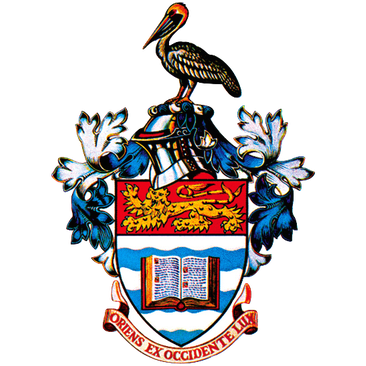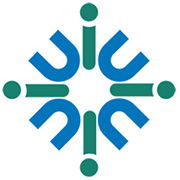Students pursuing a major in Biomedical Studies are required to complete the following 98 credit hours of courses. It is recommended that students take the following courses in the year of study indicated. Students must take an additional 24 elective credit hours of which at least 9 credit hours must be upper-division courses from any discipline for degree completion.
1st year - 34 credit hours
BIOL 103-3
Introductory Biology I
BIOL 104-3
Introductory Biology II
BIOL 123-1
Introductory Biology I Laboratory
BIOL 124-1
Introductory Biology II Laboratory
CHEM 100-3
General Chemistry I
CHEM 101-3
General Chemistry II
CHEM 120-1
General Chemistry Lab I
CHEM 121-1
General Chemistry Lab II
FNST 100-3
The Aboriginal Peoples of Canada
HHSC 101-3
Introduction to Health Science I: Issues and Controversies
HHSC 103-3
Health Care Systems
HHSC 105-3
Functional Anatomy
Two of the following:
ENGL 100-3
Introduction to Literary Structures
ENGL 102-3
Introduction to Poetry
ENGL 103-3
Introduction to Fiction
ENGL 104-3
Introduction to Film
ENGL 170-3
Writing and Communication Skills
2nd year - 32 credit hours
BIOL 203-3
Microbiology
BIOL 210-3
Genetics
CHEM 201-3
Organic Chemistry I
CHEM 203-3
Organic Chemistry II
CHEM 204-3
Introductory Biochemistry
CHEM 250-1
Organic Chemistry Lab I
CHEM 251-1
Organic Chemistry Lab II
HHSC 201-3
Ethics and Law in Health Care
HHSC 311-3
Nutrition
PSYC 101-3
Introduction to Psychology I
PSYC 102-3
Introduction to Psychology II
STAT 240-3
Basic Statistics
or ECON 205-3
Statistics for Business and the Social Sciences
3rd year - 23 credit hours
BIOL 311-3
Cell and Molecular Biology
BCMB 306-3
Intermediary Metabolism
FNST 302-3
First Nations Health and Healing
HHSC 305-3
Human Physiology I
HHSC 306-3
Human Physiology II
HHSC 325-1
Human Physiology I Lab
HHSC 326-1
Human Physiology II Lab
HHSC 351-3
Research Design and Methods for Health Sciences
PSYC 309-3 Introduction to Health Psychology
4th year - 9 credit hours
HHSC 401-3
Principles of Epidemiology
HHSC 445-3 Human Health and Development
HHSC 471-3
Health and Chronic Disease Management
Note: Students intending to apply to professional health degree programs are encouraged to take the following courses as electives: PHYS 110-4, PHYS 111-4, MATH 100-3 and MATH 101-3.
Major in Community and Population Health - Aboriginal and Rural Health
Students pursuing a major in Community and Population Health-Aboriginal and Rural Health are required to complete the following 97 credit hours. It is recommended that students take the following courses in the year of study indicated.
1st year - 26 credit hours
BIOL 103-3
Introductory Biology I
BIOL 104-3
Introductory Biology II
BIOL 123-1
Introductory Biology I Laboratory
BIOL 124-1
Introductory Biology II Laboratory
CHEM 100-3
General Chemistry I
FNST 100-3
The Aboriginal Peoples of Canada
HHSC 101-3
Introduction to Health Science I: Issues and Controversies
HHSC 103-3
Health Care Systems
HHSC 105-3
Functional Anatomy
One of the following:
ENGL 100-3
Introduction to Literary Structures
ENGL 102-3
Introduction to Poetry
ENGL 103-3
Introduction to Fiction
ENGL 104-3
Introduction to Film
ENGL 170-3
Writing and Communication Skills
2nd year - 24 credit hours
BIOL 203-3
Microbiology
ECON 210-3
Introduction to Health Economics and Policy
or GEOG 202-3
Resources, Economies, and Sustainability
HHSC 102-3
Introduction to Health Science II: Rural and Aboriginal Issues
HHSC 201-3
Ethics and Law in Health Care
HHSC 311-3
Nutrition
PSYC 101-3
Introduction to Psychology I
PSYC 102-3
Introduction to Psychology II
STAT 240-3
Basic Statistics
or ECON 205-3
Statistics for Business and the Social Sciences
3rd year - 23 credit hours
ENPL 313-3 Rural Community Economic Development
FNST 302-3 First Nations Health and Healing
FNST 303-3 First Nations Religion and Philosophy
or FNST 304-3 Indigenous Environmental Philosophy
HHSC 305-3 Human Physiology I
HHSC 306-3 Human Physiology II
HHSC 325-1 Human Physiology I Lab
HHSC 326-1 Human Physiology II Lab
HHSC 351-3 Research Design and Methods for Health Sciences
PSYC 309-3
Introduction to Health Psychology
4th year- 18 credit hours
HHSC 401-3
Principles of Epidemiology
HHSC 421-3
Medical Geography
or ENVS 306-3
Human Ecology
HHSC 445-3 Human Health and Development
HHSC 471-3
Health and Chronic Disease Management
HHSC 473-3
Health Promotion
SOCW 444-3
Social Work Critical Issues in Aging
Students must take an additional 6 credit hours from the following list, of which at least 3 credit hours must be upper-division courses. Students must ensure that all prerequisites are fulfilled prior to registering in any course.
ANTH 201-3 Medical Anthropology
ANTH 206-3 Ethnography in Northern British Columbia
ECON 410-3 Health Economics
FNST 249-3 Aboriginal Resource Planning
FNST 305-3 Seminar in First Nations Studies
POLS 403-3 Social and Health Policy and Administration
SOCW 440-3 Social Work in Mental Health
SOCW 441-3 Social Work and Substance Use
SOCW 443-3 Social Work and Health Care
Major in Community and Population Health - Environmental Health
Students pursuing a major in Community and Population Health-Aboriginal and Rural Health are required to complete the following 97 credit hours. It is recommended that students take the courses listed below in the year of study indicated.
1st year - 26 credit hours
BIOL 103-3
Introductory Biology I
BIOL 104-3
Introductory Biology II
BIOL 123-1
Introductory Biology I Laboratory
BIOL 124-1
Introductory Biology II Laboratory
CHEM 100-3
General Chemistry I
FNST 100-3
The Aboriginal Peoples of Canada
HHSC 101-3
Introduction to Health Science I: Issues and Controversies
HHSC 103-3
Health Care Systems
HHSC 105-3
Functional Anatomy
One of the following:
ENGL 100-3
Introduction to Literary Structures
ENGL 102-3
Introduction to Poetry
ENGL 103-3
Introduction to Fiction
ENGL 104-3
Introduction to Film
ENGL 170-3
Writing and Communication Skills
2nd year - 27 credit hours
BIOL 203-3
Microbiology
ECON 210-3
Introduction to Health Economics and Policy
or GEOG 202-3
Resources, Economies, and Sustainability
ENPL 205-3 Environment and Society
HHSC 102-3
Introduction to Health Science II: Rural and Aboriginal Issues
HHSC 201-3
Ethics and Law in Health Care
HHSC 311-3
Nutrition
PSYC 101-3
Introduction to Psychology I
PSYC 102-3
Introduction to Psychology II
STAT 240-3
Basic Statistics
3rd year - 20 credit hours
FNST 302-3
First Nations Health and Healing
ENSC 308-3
Northern Contaminated Environments
HHSC 305-3
Human Physiology I
HHSC 306-3
Human Physiology II
HHSC 325-1
Human Physiology I Lab
HHSC 326-1
Human Physiology II Lab
HHSC 351-3
Research Design and Methods for Health Sciences
PSYC 309-3
Introduction to Health Psychology
4th year - 18 credit hours
HHSC 401-3
Principles of Epidemiology
HHSC 421-3
Medical Geography
or ENVS 306-3
Human Ecology
HHSC 445-3 Human Health and Development
HHSC 471-3
Health and Chronic Disease Management
HHSC 473-3
Health Promotion
SOCW 444-3
Social Work Critical Issues in Aging
Students must take an additional 6 credit hours from the following list. Students must ensure that all prerequisites are fulfilled prior to registering in any course.
ECON 410-3 Health Economics
ENPL 208-3 First Nations Community and Environmental Planning
ENPL 304-3 Mediation, Negotiation and Public Participation
HIST 360-3 An Introduction to Environmental History
INTS 470-3 Global Environmental Governance
NREM 306-3 Society, Policy and Administration
or POLS 344-3 Society, Policy and Administration of Natural Resources
POLS 403-3 Social and Health Policy and Administration
Elective and Academic Breadth Requirement for all BHSc Majors
Students take electives at any level sufficient to ensure completion of a minimum 122 credit hours. This includes taking any additional credits necessary to meet the Academic Breadth requirement of the University (see Academic Regulation 15).
Bachelor of Health Sciences Honours (BHSc, Honours)
Entry to the Honours Program takes place after the end of the third year (i.e., upon completion of 90 credit hours) and requires a minimum Cumulative GPA of 3.33 over the most recent 30 credit hours or permission of the School Chair. Consultation with Student Advising is highly recommended before applying. Attaining the minimum requirement does not guarantee entry to the Honours Program, which is at the discretion of the School Chair. Subsequent to entry, and to remain in the Honours Program, students must maintain a minimum Semester GPA of 3.33 in each semester. All Honours students complete a thesis project (HHSC 490-6 Honours Thesis) under the direct supervision of a faculty member. Students are responsible to find their own undergraduate thesis research supervisor. Faculty members are under no obligation to supervise Honours students.
To be awarded the BHSc Honours Degree, students must complete all requirements for the BHSc in their major of choice and the following 9 Honours credit hours:
HHSC 490-6 Honours Thesis
HHSC 497-3 Senior Seminar
*Students must achieve a minimum grade of B (3.0) in HHSC 490-6 to be granted the Honours designation.
The minimum requirement for completion of a BHSc Honours is 131 credit hours.
All Honours Thesis research must comply with the Research Ethics Board requirements and is carried out at the discretion of the School of Health Sciences.
Show less











